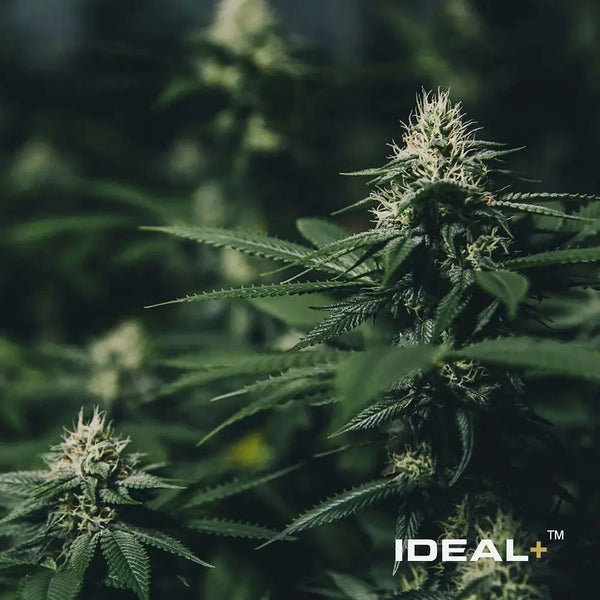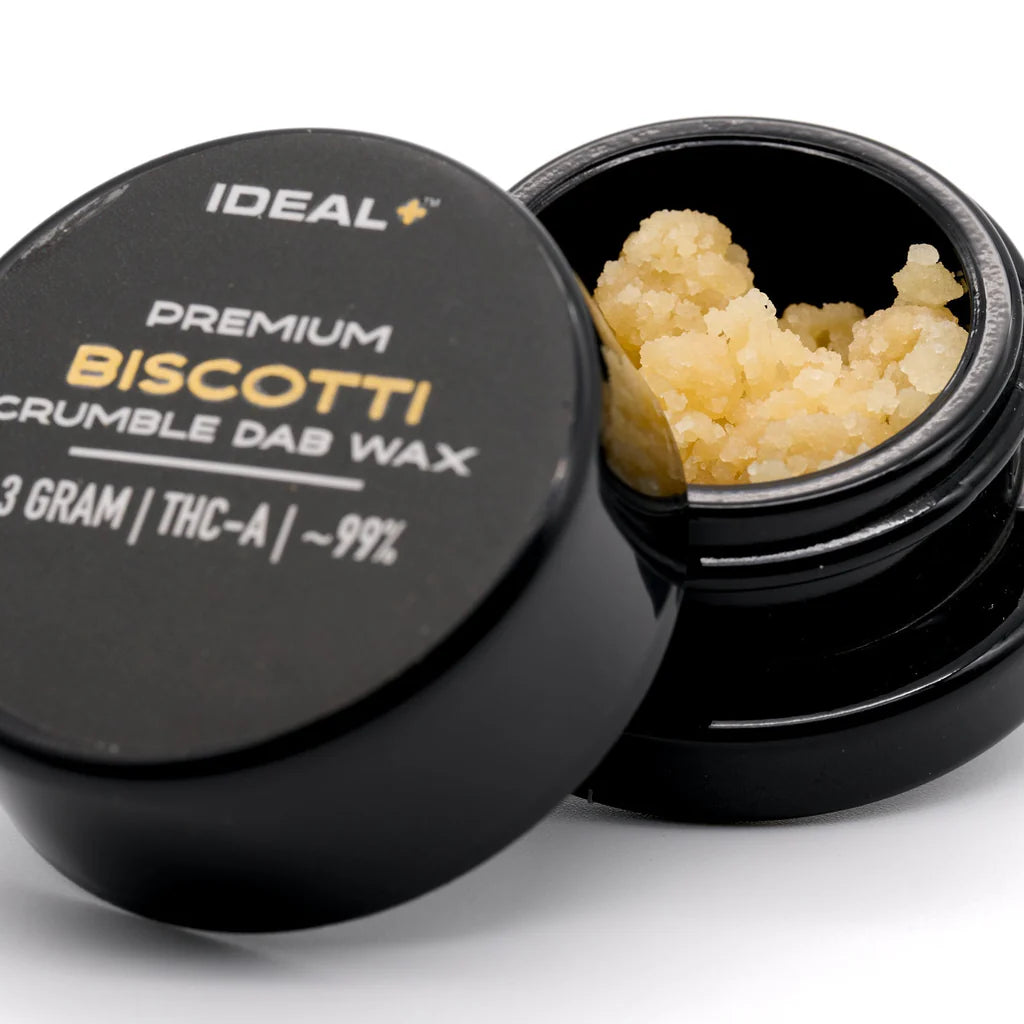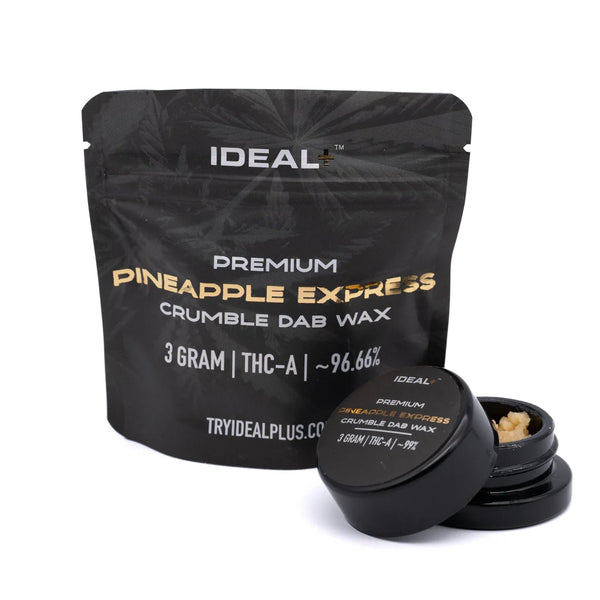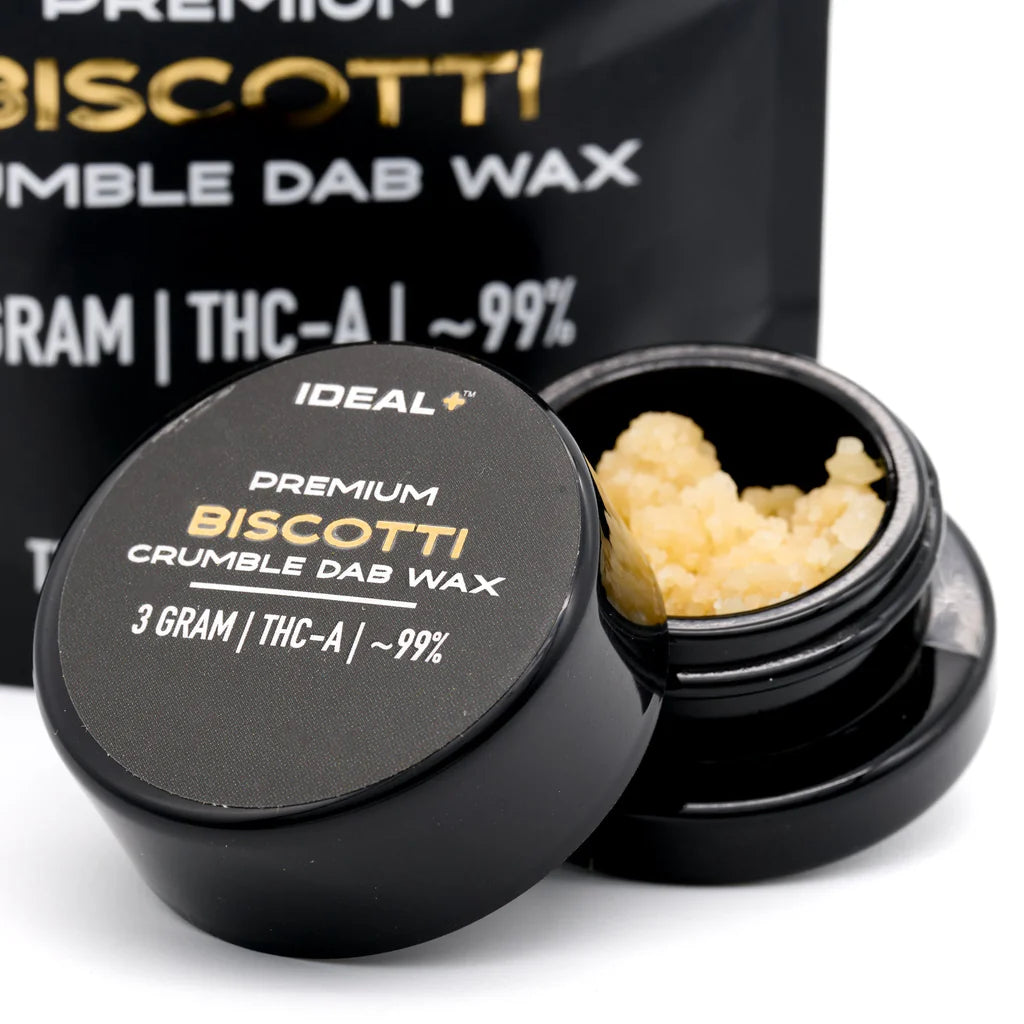No Products in the Cart
GET 25% OFF YOUR FIRST ORDER | GREENHOUSE THCA FLOWER 7g - $26.24 $34.99
The cannabis concentrate market has exploded in recent years, with THCA concentrates emerging as one of the most sought-after products among both recreational users and medical patients. If you've been wondering "what is THCA concentrate" and how it differs from traditional THC products, you've come to the right place. This comprehensive guide will walk you through everything you need to know about THCA extract, from its molecular structure to its various forms and effects.
Unlike the psychoactive THC that most people are familiar with, THCA (tetrahydrocannabinolic acid) exists naturally in raw cannabis plants and offers a unique experience that's captivating both newcomers and seasoned cannabis enthusiasts. Whether you're curious about THCA concentrate for beginners or looking to deepen your understanding of these potent extracts, this guide covers all the essential information you need to make informed decisions about THCA products.

To truly understand what THCA concentrate is, we first need to explore the fundamental science behind tetrahydrocannabinolic acid. THCA is the acidic precursor to THC, naturally occurring in fresh, living cannabis plants. When you examine raw cannabis flower under a microscope, those crystalline structures you see coating the plant material are primarily composed of THCA, along with other cannabinoid acids.
The molecular structure of THCA includes an additional carboxyl group (COOH) that distinguishes it from THC. This seemingly small difference has profound implications for how the compound interacts with your body's endocannabinoid system. In its raw, acidic form, THCA doesn't produce the intoxicating effects associated with THC because it doesn't effectively bind to CB1 receptors in the brain.
Tetrahydrocannabinolic acid concentrate represents the pinnacle of this naturally occurring compound, concentrated and refined to deliver potency levels that can reach 80-99% purity. This concentration process preserves the acidic form of the cannabinoid while removing plant materials, fats, and other unwanted compounds that might interfere with the desired effects or flavor profile.
The fascinating aspect of THCA is its dual nature. While it remains non-psychoactive in its natural state, it holds the potential for psychoactivity through a simple chemical transformation. This unique characteristic makes THCA concentrates particularly appealing to users who want flexibility in their cannabis experience – the ability to consume it raw for potential therapeutic benefits or activate it through heat for traditional THC effects.
Research into THCA's properties is still evolving, but preliminary studies suggest it may offer anti-inflammatory, neuroprotective, and antiemetic properties even before decarboxylation. This potential makes THCA extract products increasingly popular among medical cannabis patients seeking symptom relief without immediate psychoactive effects.
Understanding THCA concentrates explained requires a deep dive into the sophisticated extraction and production methods that create these potent products. The process begins with selecting premium cannabis flower, typically fresh or flash-frozen material that preserves the highest levels of THCA before natural decarboxylation can occur.
The most common extraction method for producing high-quality THCA concentrate involves hydrocarbon extraction using butane or propane. This process operates at low temperatures to preserve the delicate acidic cannabinoids while effectively separating them from plant material. The initial extraction creates a crude oil containing THCA along with other cannabinoids, terpenes, and minor plant compounds.
The real artistry in THCA extract production comes during the purification and crystallization phases. Through a process called "diamond mining," extractors can encourage THCA to form large, pure crystals while separating terpene-rich sauce. This technique involves controlling temperature, pressure, and time to allow THCA molecules to slowly organize into their crystalline structure, sometimes growing diamonds as large as several grams.
Another popular extraction method involves rosin pressing, which uses heat and pressure to squeeze resinous compounds from cannabis material without chemical solvents. While this method typically produces lower overall yields, it creates a full-spectrum THCA concentrate that many users prefer for its terpene preservation and natural extraction process.
The potency levels achieved in quality THCA concentrates are truly remarkable. While cannabis flower typically contains 15-25% total cannabinoids, concentrated THCA products regularly test between 80-99% pure THCA. This concentration means that a single gram of THCA extract contains the equivalent cannabinoid content of 4-6 grams of premium flower, making these products incredibly efficient for both recreational and medical applications.
Quality control during production is crucial for creating safe, effective THCA concentrate products. Reputable manufacturers employ rigorous testing protocols to ensure their extracts are free from residual solvents, pesticides, heavy metals, and microbial contaminants. They also test for accurate cannabinoid and terpene profiles, providing consumers with detailed certificates of analysis for every batch.

One of the most important concepts for understanding what does THCA concentrate do is the decarboxylation process – the chemical transformation that converts THCA into psychoactive THC. This process occurs naturally over time but can be accelerated dramatically through the application of heat, making it a crucial factor in how THCA concentrate work.
Decarboxylation is essentially the removal of the carboxyl group (COOH) from the THCA molecule. When THCA is exposed to temperatures around 220-240°F (104-116°C) for extended periods, or higher temperatures for shorter durations, this carboxyl group breaks away as carbon dioxide, leaving behind the familiar THC molecule. This transformation is why smoking, vaping, or cooking with cannabis creates psychoactive effects while eating raw cannabis typically doesn't.
The time and temperature relationship in decarboxylation is critical for THCA concentrate users to understand. Lower temperatures over longer periods can achieve complete decarboxylation while better preserving terpenes and preventing the degradation of THC into less desirable compounds. For example, dabbing THCA concentrates at temperatures between 450-550°F provides nearly instantaneous decarboxylation and vaporization.
THCA concentrate for beginners often raises questions about partial decarboxylation and dosing considerations. When you heat THCA extract, the conversion to THC isn't always 100% efficient, and the rate of conversion can vary based on factors like temperature, time exposure, and the specific product's composition. This variability means that the same amount of THCA concentrate might produce different effects depending on how it's consumed.
The beauty of THCA concentrates lies in giving users complete control over when and how much decarboxylation occurs. Consumers can choose to dab at high temperatures for immediate, intense effects, use lower temperature vaporization for more gradual onset, or even consume small amounts raw for potential non-psychoactive benefits. This flexibility makes THCA extract products incredibly versatile for different consumption preferences and tolerance levels.
Some users experiment with partial decarboxylation by applying controlled heat to their THCA concentrate before consumption. This technique allows for customized potency and can create unique effect profiles that combine both raw THCA benefits and activated THC psychoactivity. However, this advanced technique requires careful temperature monitoring and isn't recommended for beginners without proper guidance and equipment.
The world of THCA concentrates offers an impressive variety of textures, consistencies, and forms, each providing unique characteristics in terms of flavor, potency, and consumption methods. Understanding these different types helps consumers choose the THCA extract products that best match their preferences and experience level.
THCA Diamonds represent the purest form of THCA concentrate, appearing as large, crystalline structures that can range from small granules to massive gems several grams in size. These diamonds typically test at 95-99% pure THCA, making them among the most potent cannabis products available. The crystallization process removes most terpenes, resulting in a relatively flavorless concentrate that delivers pure cannabinoid effects. Many diamonds are sold alongside separated terpene sauce, allowing users to customize their flavor and entourage effect experience.
Live Resin THCA concentrates are produced from fresh, flash-frozen cannabis material, preserving the plant's original terpene profile more effectively than traditional curing methods. This THCA extract maintains a more complex flavor profile and often provides enhanced effects through the entourage effect of preserved terpenes. The consistency typically ranges from sauce-like to sugar-like, depending on the specific production techniques used.
THCA Shatter and THCA Wax represent more traditional concentrate textures that have been refined to preserve higher THCA content. Shatter has a glass-like consistency that breaks cleanly, while wax maintains a more malleable, honeycomb-like structure. These THCA concentrates often strike a balance between potency and terpene preservation, making them popular choices for users who want strong effects without sacrificing flavor.
THCA Sauce combines crystalline THCA with high-terpene extract, creating a product that offers both potency and complex flavor profiles. The sauce typically contains 60-80% THCA along with significant terpene content, providing a more well-rounded experience than pure diamonds while maintaining high potency levels. This type of THCA concentrate is particularly popular among connoisseurs who appreciate both effects and flavor.
Rosin-based THCA concentrates are produced using solventless extraction methods, appealing to consumers who prefer products made without chemical solvents. While these typically achieve lower overall potency than solvent-based extracts, they often provide superior flavor and a more complete cannabinoid profile. The texture can range from budder-like to crystalline, depending on post-processing techniques.
Hash Rosin THCA represents the premium end of solventless concentrates, made from bubble hash rather than flower material. This THCA extract typically commands higher prices but offers exceptional flavor preservation and clean consumption. The production process is labor-intensive and requires significant skill, making these products relatively rare and sought-after among concentrate enthusiasts.

When exploring what does THCA concentrate do in the human body, it's important to distinguish between the effects of raw THCA and those that occur after decarboxylation into THC. This distinction is crucial for THCA concentrate for beginners who want to understand the full spectrum of potential experiences these products can provide.
In its raw, acidic form, THCA doesn't produce the classic "high" associated with cannabis consumption. Instead, preliminary research suggests that THCA extract may offer several potential therapeutic benefits without psychoactive effects. These may include anti-inflammatory properties that could help with conditions involving chronic inflammation, potential neuroprotective effects that might support brain health, and possible antiemetic properties that could help reduce nausea and vomiting.
The non-psychoactive nature of raw THCA concentrate makes it particularly appealing to medical cannabis patients who need symptom relief during daytime hours without impairment. Some users report that consuming small amounts of raw THCA extract provides subtle mood enhancement and increased focus without the intoxicating effects that might interfere with daily activities.
However, most consumers use THCA concentrates specifically for their potential to deliver potent THC effects after decarboxylation. When heated and consumed, these products can produce intense psychoactive experiences due to their high concentration levels. A small amount of THCA concentrate – often just a rice grain-sized portion – can deliver effects equivalent to consuming several grams of traditional cannabis flower.
The rapid onset of effects when dabbing THCA concentrates makes them particularly suitable for experienced users who understand their tolerance levels. The effects typically begin within seconds to minutes of consumption, peak within 30-60 minutes, and can last 2-4 hours depending on individual factors like tolerance, body weight, and metabolism.
Tetrahydrocannabinolic acid concentrate products also offer precise dosing capabilities that can benefit both medical and recreational users. The high potency and consistent composition of quality THCA extracts allow users to measure very small, controlled doses that can be gradually increased until desired effects are achieved. This precision is particularly valuable for medical patients who need consistent, predictable symptom relief.
The entourage effect plays a significant role in how THCA concentrate work within the body. Products that preserve terpenes and other cannabinoids often provide more complex, nuanced effects compared to isolated THCA. This synergistic interaction between compounds can enhance therapeutic benefits while potentially reducing unwanted side effects associated with high-THC consumption.
For users interested in microdosing, THCA concentrates offer unparalleled precision. Even experienced cannabis users often find that their normal dosing doesn't translate directly to concentrates, making it essential to start with extremely small amounts and gradually increase until comfortable effects are achieved.

Understanding the legal landscape and safety considerations surrounding THCA concentrate is crucial for responsible consumption. While THCA itself exists in a legal gray area in many jurisdictions, the fact that it readily converts to THC when heated means these products are often regulated similarly to traditional THC concentrates.
The legal status of THCA extract varies significantly by location. In some areas where hemp-derived products are legal, THCA concentrates made from compliant hemp plants may be available. However, the high concentration levels and easy conversion to THC mean these products face scrutiny from regulatory authorities. Consumers should always verify local laws before purchasing or possessing THCA concentrates.
Safety considerations for THCA concentrate for beginners include understanding proper dosing, storage, and consumption methods. The extreme potency of these products means that even experienced cannabis users should start with much smaller amounts than they might typically consume. A dose the size of a grain of rice can provide significant effects, making precision scales and proper dabbing tools essential for safe consumption.
Proper storage of THCA concentrates is crucial for maintaining potency and preventing degradation. These products should be kept in cool, dark environments, preferably in airtight containers that prevent exposure to light, air, and moisture. Improper storage can lead to decarboxylation over time, converting THCA to THC and potentially affecting the intended effects and legal status of the product.
Quality THCA extract products should always come with comprehensive certificates of analysis (COAs) that verify purity, potency, and safety. These laboratory reports test for residual solvents, pesticides, heavy metals, and microbial contaminants that could pose health risks. Reputable manufacturers provide easily accessible COAs for every batch of product they produce.
The consumption method significantly impacts safety when using THCA concentrates. Dabbing requires specialized equipment including a dab rig, nail or banger, torch, and temperature measurement tools. Proper technique and temperature control are essential for safe consumption and optimal effects. Beginners should consider seeking guidance from experienced users or budtenders before attempting to dab concentrates independently.
What's the difference between THCA concentrate and regular THC concentrates?
The primary difference lies in the molecular structure and activation requirements. THCA concentrate contains the acidic precursor to THC and remains non-psychoactive until heated. Regular THC concentrates have already undergone decarboxylation and provide immediate psychoactive effects. This distinction means THCA extract offers more flexibility in consumption methods and timing of effects.
How much THCA concentrate should a beginner use?
THCA concentrate for beginners requires extremely conservative dosing due to the high potency levels. Start with a piece no larger than a grain of rice, which typically contains 20-30mg of THCA. This amount may seem tiny, but remember that you're consuming 80-99% pure cannabinoid content. Always wait at least 10-15 minutes between doses when experimenting with new products.
Can you eat THCA concentrate raw?
Yes, raw THCA concentrate can be consumed without heating, and it won't produce psychoactive effects. Some users add small amounts to smoothies, salads, or other foods to potentially benefit from THCA's properties without intoxication. However, the taste can be quite strong and resinous, so start with very small amounts.
What equipment do I need to use THCA concentrates?
For dabbing THCA concentrates, you'll need a dab rig, nail or banger, torch, carb cap, and dabbing tool. Many users also invest in temperature measurement devices to optimize their consumption experience. For beginners, electronic dab rigs with preset temperatures can provide more consistent results than manual torching methods.
How long do the effects of THCA concentrate last?
When THCA extract is heated and consumed, effects typically begin within seconds to minutes, peak around 30-60 minutes, and can last 2-4 hours. The intensity and duration can vary based on individual tolerance, dosage, consumption method, and the specific product's terpene profile.
Are THCA concentrates legal?
The legal status varies by jurisdiction and can be complex. While THCA itself may fall into legal gray areas, its easy conversion to THC means these products are often regulated similarly to traditional cannabis concentrates. Always check local and state laws before purchasing or possessing THCA concentrates.
What's the best way to store THCA concentrate?
Store THCA extract products in cool, dark places using airtight containers. Many users prefer silicone containers or glass jars with tight-fitting lids. Avoid exposure to heat, light, and air, which can cause degradation and unwanted decarboxylation over time. Proper storage can maintain product quality for many months.
Can THCA concentrate help with medical conditions?
While research is still emerging, some studies suggest raw THCA may have anti-inflammatory, neuroprotective, and antiemetic properties. However, it's important to consult with healthcare professionals familiar with cannabis medicine before using THCA concentrates for medical purposes. Never replace prescribed medications without medical supervision.
Understanding what is THCA concentrate opens up a world of possibilities for both recreational and medical cannabis users. These potent THCA extract products represent the cutting edge of cannabis concentration technology, offering unprecedented purity levels and flexible consumption options that can be tailored to individual preferences and needs.
The unique properties of tetrahydrocannabinolic acid concentrate – remaining non-psychoactive until activated by heat – provide consumers with exceptional control over their cannabis experience. Whether you're interested in the potential therapeutic benefits of raw THCA or seeking the intense effects possible through decarboxylation, these products offer versatility that traditional cannabis preparations simply cannot match.
For those wondering what does THCA concentrate do and how THCA concentrate work, the key lies in understanding the decarboxylation process and choosing consumption methods that align with your desired outcomes. The variety of available forms, from pure THCA diamonds to terpene-rich live resin extracts, ensures that there's likely a product that matches your preferences for potency, flavor, and effects.
THCA concentrate for beginners requires careful consideration of dosing, equipment, and consumption techniques, but the investment in learning proper methods can provide access to some of the most potent and efficient cannabis products available. Remember that the extreme concentration levels mean that a little goes a very long way, making these products both cost-effective and long-lasting for regular users.
As the cannabis industry continues to evolve, THCA concentrates explained will likely become increasingly important for consumers seeking premium experiences and medical patients requiring precise, consistent dosing. The combination of scientific advancement in extraction techniques and growing understanding of cannabinoid properties positions these products at the forefront of cannabis innovation.
Safety, legality, and quality should always be primary considerations when exploring THCA extract products. Choose reputable manufacturers who provide comprehensive testing and transparent information about their products. Start with small doses, use proper equipment, and always stay informed about local regulations regarding possession and use.
Whether you're a curious newcomer or an experienced user looking to explore new frontiers in cannabis consumption, THCA concentrates offer an exciting opportunity to experience cannabinoids in their most concentrated and versatile form. Take the time to educate yourself, start slowly, and discover how these remarkable products might fit into your cannabis journey.
Ready to explore premium THCA concentrates from trusted manufacturers? Visit tryidealplus.com to discover a curated selection of high-quality THCA extract products, complete with detailed lab testing and expert guidance to help you find the perfect concentrate for your needs.